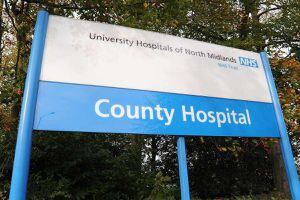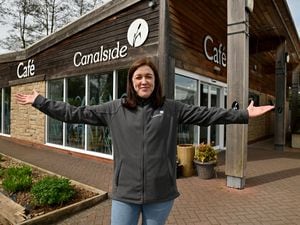Staffordshire hospitals gearing up for second wave of Covid cases this winter
Hospital bosses in Staffordshire are gearing up to tackle a second surge in Covid-19 cases – and have said this winter is going to be "very different" to usual.

There have been 355 coronavirus-related deaths across at Royal Stoke and Stafford’s County hospitals, run by the University Hospitals North Midlands NHS Trust (UHNM), since the start of the pandemic.
Last week a newsletter circulated to staff revealed there were no 'current Covid patients' at either Royal Stoke or County Hospital.
But the trust is bracing itself for a second wave of cases this winter – and chiefs are making the wellbeing of staff a priority as they work through the coming months.
Speaking at the annual meeting of UHNM, chief executive Tracy Bullock said: "This winter will be very different. Not only will we have the usual seasonal pressures of patients coming in with illnesses such as respiratory conditions, we will have our usual seasonal flu as well and on top of that we have got to plan for the potential of a resurgence of Covid.
More Covid-19 coverage:
"What we know is many of those seasonal respiratory conditions and flu will have symptoms that are very similar to Covid and that will present a challenge to all organisations within the NHS.
"Children have gone back to school and adults have gone back to work, so people have more contact with each other. We have planned to see an increase in Covid-positive people in our community, linked to an increase in the number of people that come into hospital.
"We know how to manage a Covid surge now – it’s included as part of our winter planning. We have already zoned our hospitals for each category of patient."
Tributes were paid to the dedication and hard work of staff at the meeting.
Mrs Bullock added: “I want to say a big thank you to our incredible staff – I have never seen anything like it in 36 years in the NHS. Our staff have stepped up to the plate without even being asked.
“They’ve redesigned the way we deliver services. They’ve been incredibly flexible in terms of the shift patterns they’ve worked, making sure we have cover 24/7, seven days a week, during the most intense period I’ve ever known in the NHS.”
All staff are now undergoing risk assessments, the meeting heard, to make sure their individual needs can be met and there are areas they can work where full personal protective equipment (PPE) is not required.





